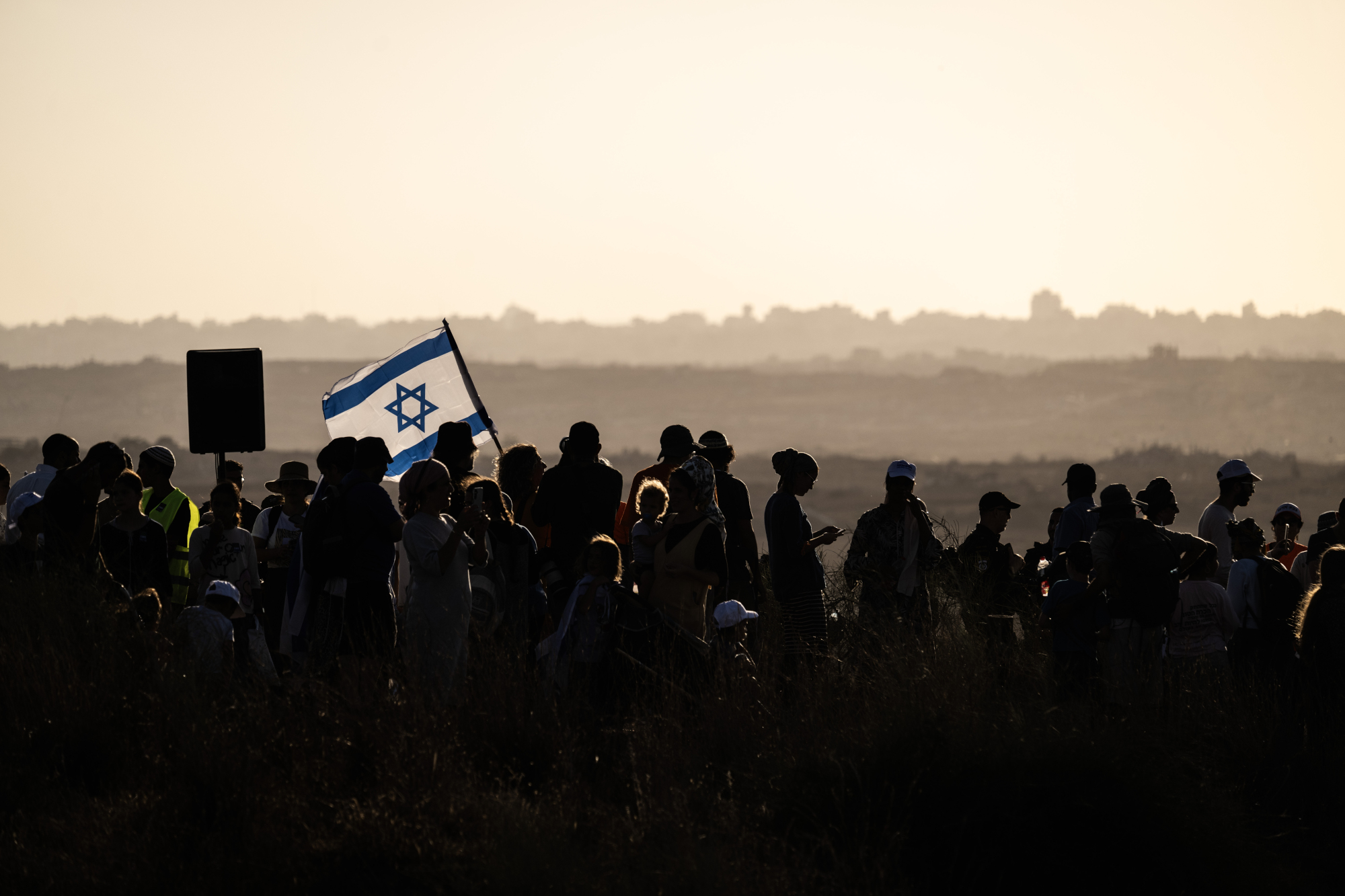In the UK today, hold the wrong view and you’re cast as beyond the pale. Brexiteers are bigots. If you oppose mass immigration, you’re a far right racist. Among parts of the political class and commentariat, these labels are considered the consensus. The political and media establishment have crafted a narrative in which dissent from liberal orthodoxy is indistinguishable from moral degeneracy. And it’s not just in Britain. Remember when Hillary Clinton branded swathes of Americans a basket of deplorables?
Many who find themselves on the receiving end of this treatment, often working-class, politically moderate folk, are stunned to discover that their legitimate fears have been transmuted into hate by those unwilling to hear them.
If the Gaza settlers had truly been the sole obstacle to peace, then peace should have followed their removal
Israel’s most demonised group may well be the ‘settlers’. Britain’s own Foreign Secretary David Lammy has frequently demonised them, calling their behaviour ‘abhorrent’, and the current British government has focused repeatedly on settlers as a useful tool to openly criticise Israel as the major obstacle to peace. For many years, within Israel they have been treated by similar elites not as citizens with arguments but as extremists to be condemned. Their intentions are questioned. Their stories ignored. Their presence framed as a national embarrassment.
Those Israelis expelled from Gaza in 2005 know this dynamic well. For decades, they were flattened into a caricature: dangerous religious fanatics, enemies of peace, the one-dimensional villains in a geopolitical morality play.
But while the demonisation of those we disagree with is easy, it is also dangerous and unhelpful. It replaces analysis with outrage and renders complex problems unsolvable by pretending they are simple.
If the Gaza settlers had truly been the sole obstacle to peace, then peace should have followed their removal. But only 20 years after Israel’s unilateral disengagement from the Gaza Strip, that illusion lies in ruins. Over 8,000 Israelis were expelled from their homes, their communities razed, their lives uprooted by the very state they believed they were defending. The land they left behind was seized by Hamas, and within mere weeks rockets began to fall on Israeli towns. Withdrawal was supposed to help end the conflict. Instead, it shifted its axis, and set the stage for possibly the darkest days in Israel’s history.
The Gaza disengagement was conceived as a strategic reset. It was meant to reduce friction, ease international pressure, and create space for a political solution. In practice, it was read by Israel’s enemies as a surrender. Many of the settlers of Gush Katif in the Gaza Strip said so at the time. They warned that abandoning Gaza unilaterally would embolden terrorists, demoralise Israeli society, and create a power vacuum certain to be filled by Hamas. They were right. And they were ignored.
As in Britain’s own simmering culture war, these debates within Israel have long been raw and deeply personal. Some argued that settlers were the front line, protecting not only themselves but the neighbouring kibbutzim and towns of the Gaza envelope. Once unknown outside Israel but today symbols of destruction wrought by Palestinian terrorists, communities like Be’eri, Nahal Oz, and Kfar Aza, dismissed that logic. They claimed the settlers were the source of the danger, not the shield from it. They protested their presence, demanded their removal, and celebrated disengagement as a path to calm. Eighteen years on, the Palestinian barbarity of 7 October delivered clarity, but far too late.
The same kibbutzim that rejected the settlers’ role as guardians became the primary targets of Hamas’s most brutal assault. Entire families were butchered. Hundreds were abducted. The border was breached with appalling ease. What the settlers had claimed, that their presence was a form of defence, was no longer abstract. It had become painfully real. Yet today, political memories have shrunk, and 20 years seems now like a lifetime ago.
Much of Israeli society has woken up to realise that the issue of Jewish settlement is not simple or binary. So how did settlers become the bogeymen of Israeli society? There is a wider cultural shift that must be acknowledged. In Israel’s early years, the pioneering ideal was firmly associated with the political left. The kibbutz movement represented sacrifice, collectivism, and national purpose. It was admired both at home and abroad, especially in Britain, where young volunteers travelled to join what they saw as a moral experiment in shared destiny. But over time, as the global left lost its affection for Israel and the Israeli left lost its grip on power, that pioneering ethos migrated. Today, it lives, uneasily, in the settler movement, which is often religious, often nationalist, and often scorned by the very societies that once romanticised Zionist pioneering.
This shift has not only alienated the international left. It has distorted the moral lens through which the conflict is viewed. For many in the Arab world, all Israelis are ‘settlers’. To them, Tel Aviv is no less illegitimate than Gush Katif or Itamar. That language has now taken hold in the West, particularly among activists with no roots in the region but with absolute certainty in their politics. The word ‘settler’ has become a slur, emptied of context and weaponised with abandon, even by our own Foreign Office.
But facts remain. After the disengagement, Hamas took over. It didn’t build hospitals or universities, but terror tunnels, rocket factories, and arsenals. It diverted international aid into military infrastructure and hoarded millions of pounds of cash underground. And it made its intentions explicit: not coexistence, but annihilation. What began with the evacuation of Gaza’s ‘settlers’ ended in the massacre of civilians. The arc is not incidental.
That is why to many Israelis today, surrender is no longer an option. But to the settlers of Gush Katif, the surrender happened 20 years ago. And it happened not through negotiation, but through unilateral withdrawal under fire. It took just one month for Gaza to become a launchpad for terror. It took 18 years for the rest of Israel to understand what the settlers already knew. How long, then, before Britain widens its view?
The demonisation of settlers has prevented many from seeing this clearly. Like Brexit voters or immigration sceptics in Britain, they were condemned not for being wrong, but for being unfashionable. Elements of their beliefs and actions were and are ugly or unacceptable. But in matters of national survival, fashion is a poor guide. Twenty years on, we know that disengagement from Gaza was not the end of the conflict, but the beginning of a war waged with increasing boldness against a nation that dared to believe land for peace was still a plausible formula.









Comments